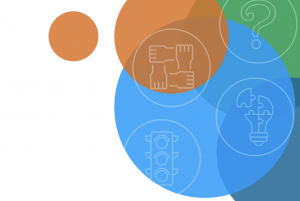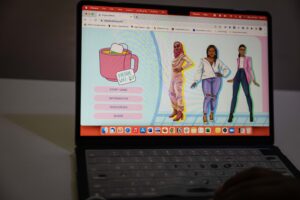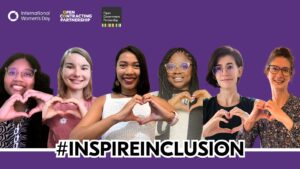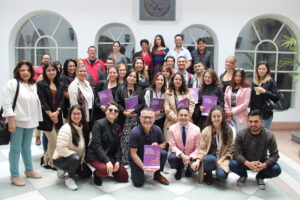
Toolkit for More Gender-Responsive Action Plans
Gender equality matters for both the legitimacy and the effectiveness of OGP. Explore four useful tools for enhancing gender responsiveness in the OGP action plan co-creation process.
At the core of OGP is the belief that governments should serve citizens, not themselves. To truly serve all citizens, open government reformers must recognize that people are not all equally affected by policy choices. Open government reformers are joining forces with gender and inclusion advocates across the Partnership to better recognize and respond to the lived realities of women, girls, and those across the gender and sexual-identity spectrum.
See the Toolkit for More Gender-Responsive Action Plans »
Overview | Recommendations | Partners | Documents | Commitments | Recent Posts
At the core of OGP is the belief that governments should serve citizens, not themselves. To truly serve all citizens, open government reformers must recognize that citizens are not all equally affected by policy choices. Government policies and practices often systematically exclude gender groups like women, girls, non-binary individuals, and members of the LGBTQIA+ community. Placing all citizens back at the center of governance demands that policymakers and civil society advocates actively bring these communities into policy-making and commitment drafting processes. This means actively consulting these communities and asking specific questions about how policies address their needs and close gaps in services, applying a gender and inclusion lens to all aspects of their work.
Across the Partnership, civil society, governments, and other key actors are doing just that: using OGP action plans to review open government commitments with a gender perspective and include more gender groups in their national and local OGP processes. In addition to gender-informed commitments, open government reformers are joining forces with gender and inclusion advocates across OGP to better recognize and respond to the lived realities of women, girls, and those across the gender and sexual-identity spectrum. Commitments include interventions to reduce gender-based violence by working across government to collect and analyze data holistically, initiatives to increase women-owned businesses’ access to public procurement bids, and platforms to expand citizen knowledge of health care clinics and solicit feedback on the quality of care they receive.
An increasing number of OGP members have incorporated gender and inclusion commitments in their action plans over time. 61 OGP members are implementing 149 inclusion commitments from their 2020 or 2021 action plans. 56 of these commitments make specific reference to gender. Since OGP was established in 2011, 106 members have made 432 total inclusion commitments. Of these, 63 members have made 181 commitments explicitly related to gender.
A small subsection of OGP gender commitments focus on or engage with LGBTQIA+ communities. As of 2022, 5 percent of OGP members are implementing LGBTQIA+ commitments, with one-quarter of members in the Americas having made at least one commitment in this area.
These commitments range from improving policy-making by engaging with LGBTQIA+ communities, collaborating with LGBTQIA+ organizations as part of the co-creation process, or designing commitments that specifically advance LGBTQIA+ rights and anti-discrimination reforms.
OGP works with members to support actively involving women, non-binary, LGBTQIA+, and under-represented communities in the co-creation process; designing commitments that directly target inclusion; and applying principles of inclusion and intersectionality across open government reforms. We seek opportunities to better connect local, national, and global gender initiatives to core government transparency and accountability action.

Gender equality matters for both the legitimacy and the effectiveness of OGP. Explore four useful tools for enhancing gender responsiveness in the OGP action plan co-creation process.

As OGP completes 10 years, see how gender reform has advanced, as accelerated by the OGP platform and a growing global community of reformers in governments, civil society, business, media and international organizations.

Societies with greater political and economic equality demonstrate higher sustained rates of growth and lower poverty rates over time. Inclusion is also fundamental to the mission of open government; in order for governments to be truly open, they must serve all people – not just particular groups...
The Feminist Open Government Initiative uses research, guidance, and collaboration to encourage governments and civil society to pursue reforms leading to gender advancements. The Initiative began as a priority of the 2018-2019 OGP co-chairship of Nathaniel Heller of Results for Development and the Government of Canada and continues today with support from the International Development Research Centre (IDRC), Global Affairs Canada (GAC), and Open Data for Development Network (OD4D).
Under the Feminist Open Government Initiative, a first round of research included case studies from Côte d’Ivoire, Burkina Faso, Senegal, Kenya, South Africa, Ghana, Indonesia, the Philippines, Uruguay, Costa Rica, Mexico, Jordan, and Tunisia. A second round of research identified opportunities to accelerate gender and women’s participation in OGP processes and commitments. Today, OGP continues to document best practices and tools through the Feminist Open Government Initiative, Multi-Donor Trust Fund projects, and collaboration with members of the Gender Coalition.
This research underpinned Break the Roles, a 2019-2021 campaign to inspire action to increase gender equality through OGP Learn more about that work and hear from some of the inspirational gender champions in the OGP community here.
Societies with greater political and economic equality demonstrate higher sustained rates of growth and lower poverty rates over time. Inclusion…
2023, Document, PDF
Open Ownership looks at the links between beneficial ownership transparency and gender. It considers a range of potential benefits, limitations,…
2022, Outbound Link, Web Page
Gender equality matters for both the legitimacy and the effectiveness of OGP. Explore four useful tools for enhancing gender responsiveness…
2021, Resource, Web Page
As OGP completes 10 years, see how gender reform has advanced, as accelerated by the OGP platform and a growing…
2021, Document, PDF
A look at global progress and member-level examples of open government work around gender and inclusion
2021, Document, PDF
Women and gender minorities often face disproportionate harms from oil, gas and mineral extraction and are likely to access economic…
2021, Outbound Link, Web Page
In this report, Poder Ciudadano (Transparency International's chapter in Argentina) lays out an evaluation and a series of recommendations to…
2020, Outbound Link, Web Page
Transparency International shares recommendations for governments serious about tackling the impact of corruption on women and ensuring their participation in…
2020, Outbound Link, Web Page
This research report by the Open Contracting Partnership and Value for Women explores the barriers facing women-led businesses in public…
2020, Outbound Link, Web Page
Bringing an inclusion lens to COVID-19 open government reforms is vital to ensure effective government response and recovery efforts. Find…
2020, Guidance Document, Web Page
2019, Resource, Web Page
Opening up government is an underexplored method for accelerating gender equality and closing critical gaps in information, access, and participation.
2019, , Web Page
2018, Perspective, Web Page
The Feminist Open Government Initiative uses research and action to encourage governments and civil society to champion initiatives leading to…
2018, , Web Page

In honor of International Women's Day, Diana Sagastume, speaks on the ongoing efforts to address gender-based violence in Guatemala.

Learn more about Guatemala's Open Gov Challenge commitment on combatting gender-based violence.

Learn how by leveraging their expertise in gender, data, and technology, Pollicy aims to develop models for cross-regional learning and peer exchange between OGP members, starting with Kenya.

This International Women's Day, we're flipping the script and debunking some of these myths one by one. Take a look at insights from incredible women who are breaking barriers, defying expectations, and reshaping the landscape of governance, public procurement, and leadership.

Violence and corruption are two concepts that have been separated for a long time. According to the 2022 Corruption Perception Index, Ecuador ranked 101 out of 180 countries in terms of corruption. Dialogo Diverso (an organization that promotes the…
Violencia y corrupción son dos conceptos que por mucho tiempo han estado separados. Según el Índice de la Percepción de la Corrupción, hasta 2022, Ecuador ocupaba el lugar 101 de 180 países en nivel de corrupción. Diálogo Diverso (una organización…
Click here for more information about the Open Government Partnership's terms of use.
Terms & Conditions Close